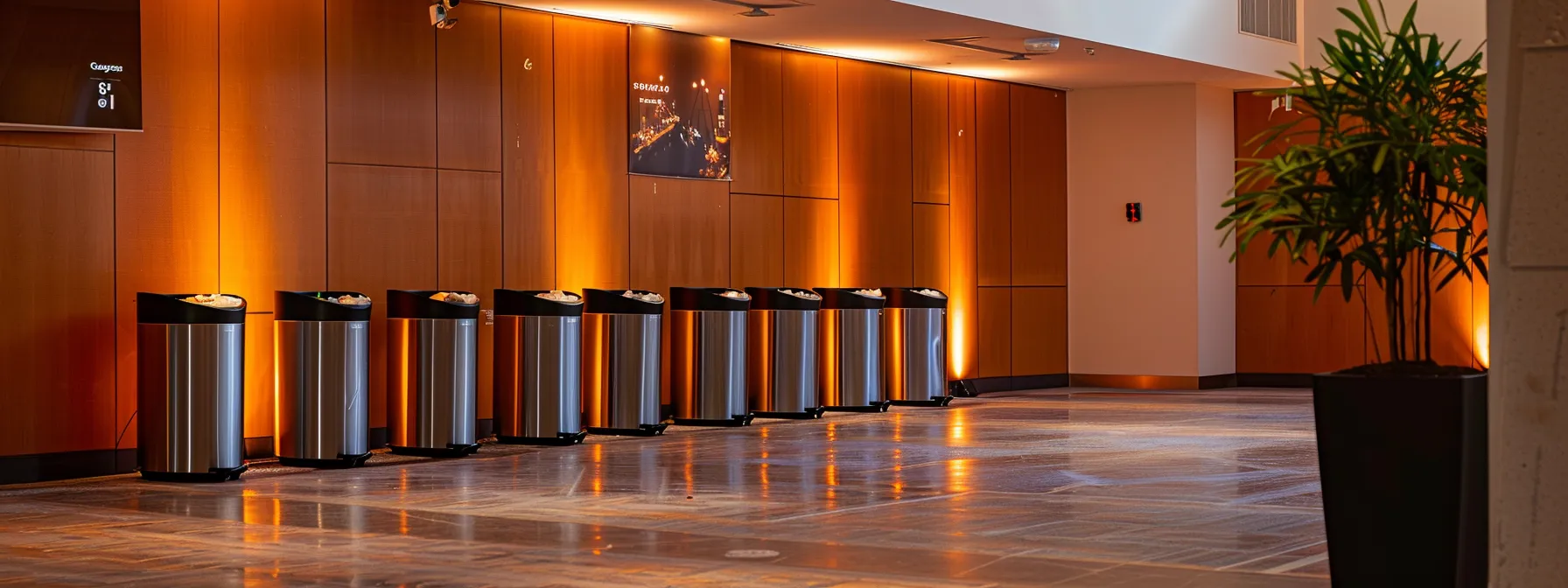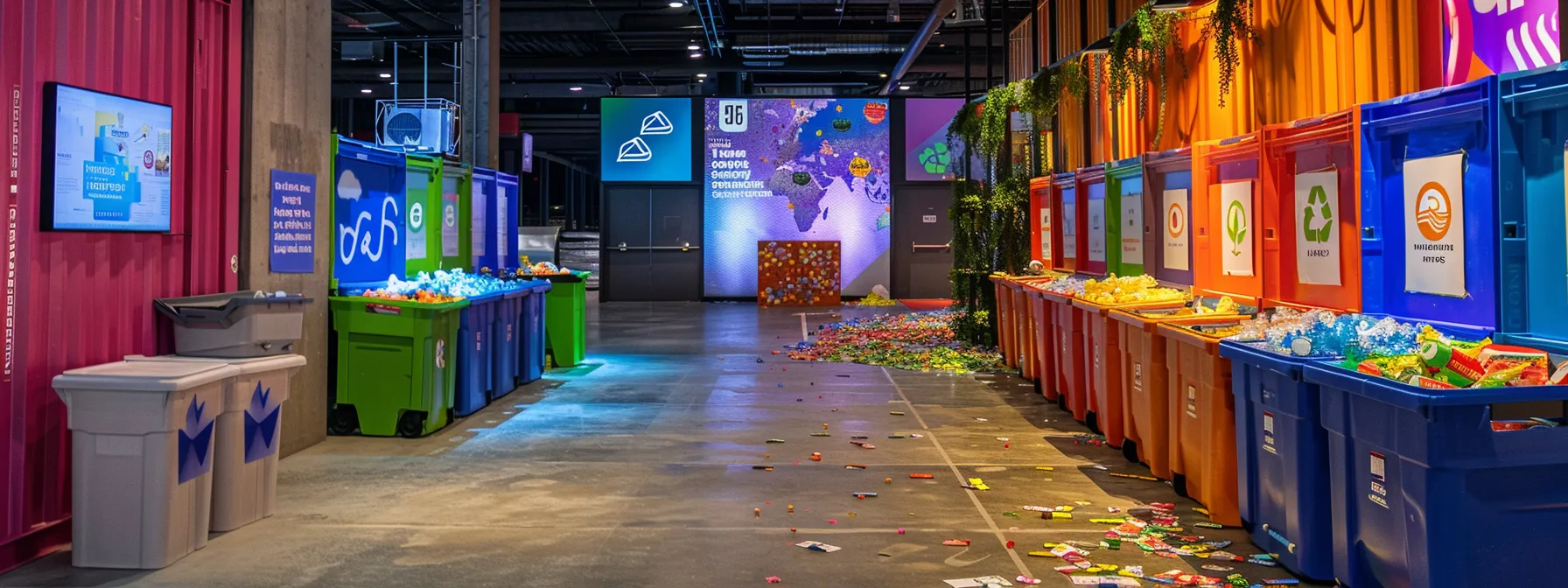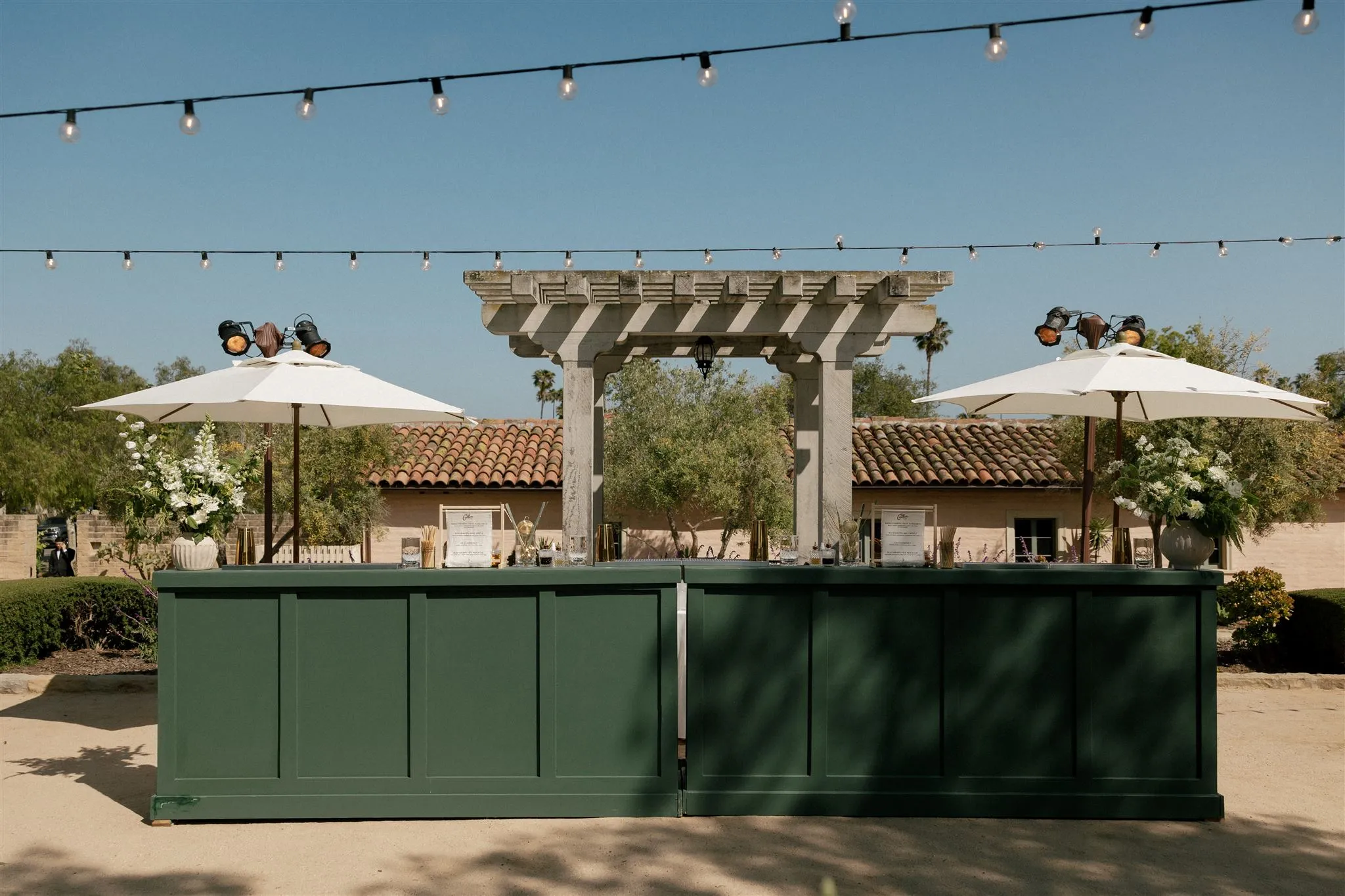Event planners, are you struggling with waste management at your gatherings? Efficient trash cans and recycling stations are essential for keeping your events clean and eco-friendly. This article explores practical waste management solutions, including the features of effective trash cans and the design of recycling stations. You’ll learn how to implement these solutions, ensuring a tidy venue and minimizing environmental impact. By the end, you’ll have the knowledge to create a comprehensive waste management plan for your next event.
Key Takeaways
- Effective event waste management is crucial for eco-friendly gatherings and enhancing the attendee experience
- Strategic placement of trash cans and recycling stations with clear labeling encourages proper waste disposal
- Smart bin technologies and partnerships with local waste facilities optimize collection and support sustainability goals
- Successful events demonstrate the feasibility of zero waste initiatives through comprehensive strategies and education
- Assessing waste management needs and budgeting for appropriate solutions are essential for effective event planning
Understanding Event Waste Management Solutions
Event waste management is crucial for eco-friendly gatherings. Effective programs address various waste types, focusing on compost and landfill diversion. Key components include strategically placed trash cans and recycling stations. These solutions support a circular economy, enhance customer experience, and promote sustainability in event planning.
The Importance of Waste Management in Event Planning
Event waste management plays a crucial role in addressing environmental issues and promoting sustainability. Proper planning helps minimize waste from plastic cups, paper napkins, and leftover meals, reducing the event’s ecological footprint. Implementing effective waste minimization strategies not only supports eco-friendly practices but also enhances the overall attendee experience, making it an essential aspect of responsible event planning.
Common Types of Waste Generated at Events
Events generate various types of waste that require effective management. Food packaging, such as disposable plates and utensils, forms a significant portion of event waste. Recyclable materials like plastic bottles, aluminum cans, and paper products are also common. Food waste from uneaten meals and scraps contributes to the overall waste stream. Proper waste collection and recycling strategies help event organizers handle these diverse waste types efficiently, reducing environmental impact and promoting sustainability.
Key Components of Effective Waste Management Programs
Effective event waste management programs incorporate several key components to promote sustainability and reduce environmental impact. Strategic placement of trash cans and recycling stations throughout the venue ensures easy access for attendees, encouraging proper waste disposal. Implementing a zero waste approach by providing clearly labeled bins for recyclables, compostables, and landfill items helps maximize diversion rates. Environmentally friendly solutions, such as portable toilets with water-saving features, contribute to overall sustainability efforts. These components work together to minimize waste, enhance the attendee experience, and demonstrate a commitment to responsible event planning.
Features of Efficient Trash Cans for Events

Efficient trash cans are essential for effective event waste management. Size and capacity considerations vary based on event scale, while material choices depend on indoor or outdoor settings. Add-ons and accessories enhance functionality, improving the waste management experience. Proper selection of trash cans helps reduce landfill waste and simplifies packaging disposal. Event planners can partner for waste management services to optimize their waste solutions.
Size and Capacity Considerations for Different Events
Event planners must carefully consider the size and capacity of trash cans to manage waste streams at different events effectively. For large-scale gatherings, organizers can opt for high-capacity dumpsters to handle significant volumes of waste. Smaller events may require strategically placed bins to encourage proper disposal and reuse practices. The choice of container size directly impacts the efficiency of waste management and the overall cleanliness of the event space.
- Large events: High-capacity dumpsters
- Small events: Strategically placed bins
- Considerations: Waste volume, event size, space constraints
- Goals: Efficient waste management, cleanliness, reuse promotion
Materials and Durability Needed for Outdoor vs. Indoor Events
The choice of materials for event trash cans significantly impacts their durability and functionality in different settings. Outdoor events require robust, weather-resistant containers that can withstand environmental factors while minimizing their ecological footprint. Indoor gatherings benefit from lightweight, easily movable options that complement the venue’s aesthetics. Event organizers can conduct a waste audit to determine the most suitable materials for their specific needs, considering factors such as recyclability and potential for community reuse. By selecting appropriate trash can materials, planners can enhance waste diversion efforts and contribute to a more sustainable event experience.
Add-Ons and Accessories That Enhance Functionality
Event organizers can enhance the functionality of trash cans with various add-ons and accessories. Lids with specific openings for different waste types encourage proper sorting and prevent contamination. Wheels make it easier to move and reposition bins as needed. Some trash cans feature built-in compactors to maximize capacity, while others include digital sensors to alert staff when they’re full. These enhancements improve waste management efficiency and contribute to a cleaner event environment.
Designing Effective Recycling Stations

Effective recycling stations are crucial for successful event waste management. Clear labeling and signage guide attendees to recycle correctly, while strategic placement ensures maximum engagement. Promoting various recyclable materials encourages eco-friendly practices. Well-designed recycling stations simplify waste sorting, reduce contamination, and support sustainability goals at events.
Clear Labeling and Signage for Easy Recycling
Clear labeling and signage play a crucial role in effective recycling stations at events. By using bold, easy-to-read text and recognizable symbols, event organizers help attendees quickly identify the correct bins for different materials. Color-coded containers further simplify the sorting process, reducing contamination and improving overall recycling rates. Well-designed signage also educates guests about proper waste disposal, promoting eco-friendly habits beyond the event itself.
Placement Strategies for Maximum Engagement
Strategic placement of recycling stations is essential for maximizing engagement at events. Organizers should position stations near high-traffic areas, such as entrances, exits, and food vendors, to ensure easy access for attendees. Pairing recycling bins with trash cans encourages proper waste sorting and reduces contamination. Event planners can also create dedicated recycling zones with multiple stations to accommodate larger crowds and promote sustainable practices.
Types of Recyclable Materials to Promote
Event organizers can promote a wide range of recyclable materials at their recycling stations. Common items include plastic bottles, aluminum cans, glass containers, and paper products. Some events also collect organic waste for composting, further reducing landfill contributions. By educating attendees about these recyclable materials and providing clearly marked bins, event planners encourage responsible waste management and support sustainability goals.
Innovative Solutions for Waste Disposal
Event waste management has evolved with innovative solutions that enhance efficiency and sustainability. Smart bin technologies use sensors and data analytics to optimize collection. Biodegradable and compostable options reduce environmental impact. Partnerships with local waste facilities ensure proper disposal and recycling. These advancements help event planners create cleaner, more eco-friendly gatherings.
Smart Bin Technologies in Waste Management
Smart bin technologies revolutionize event waste management by incorporating sensors and data analytics. These advanced systems monitor fill levels in real-time, optimizing collection routes and reducing operational costs. Some smart bins feature solar-powered compactors, increasing capacity and minimizing collection frequency. By providing valuable insights on waste generation patterns, these technologies enable event organizers to make data-driven decisions for improved sustainability.
Biodegradable and Compostable Waste Options
Event organizers increasingly adopt biodegradable and compostable waste options to reduce environmental impact. These eco-friendly alternatives include plates, utensils, and food packaging made from materials like bamboo, sugarcane, or cornstarch. By using these products, events can significantly decrease their landfill contributions and support composting initiatives. Biodegradable waste solutions align with sustainability goals and appeal to environmentally conscious attendees, enhancing the overall event experience.
Partnerships With Local Waste Management Facilities
Event organizers can form partnerships with local waste management facilities to enhance their sustainability efforts. These collaborations ensure proper disposal and recycling of event waste, often providing specialized services for large-scale gatherings. Local facilities may offer expertise in waste sorting, composting, and recycling processes, helping event planners optimize their waste management strategies. By working closely with these partners, events can achieve higher diversion rates and contribute to community-wide environmental initiatives.
Getting Started With Your Event Waste Management Plan

Creating an effective event waste management plan requires careful assessment of needs, strategic budgeting, and collaboration with suppliers. Event planners must evaluate their waste generation, allocate resources for appropriate solutions, and engage specialized services. This approach ensures comprehensive waste management, from efficient trash cans to well-designed recycling stations, supporting eco-friendly and successful events.
Assessing Your Waste Management Needs
Assessing waste management needs is a critical first step in developing an effective event plan. Event organizers should conduct a thorough analysis of expected attendee numbers, event duration, and types of waste likely to be generated. This assessment helps determine the quantity and types of trash cans and recycling stations required, as well as the frequency of waste collection during the event. A waste audit of previous similar events can provide valuable insights:
| Aspect | Consideration | Impact on Planning |
|---|---|---|
| Attendee numbers | Total expected participants | Number of waste stations needed |
| Event duration | Hours or days of operation | Frequency of waste collection |
| Waste types | Food, packaging, recyclables | Specific bin types required |
Budgeting for Waste Management Solutions
Budgeting for waste management solutions is a crucial step in event planning. Event organizers should allocate funds for renting or purchasing appropriate trash cans, recycling stations, and signage. They need to consider costs for waste collection services, including potential after-hours fees. Investing in reusable or compostable items may have higher upfront costs but can lead to long-term savings and improved sustainability.
Contacting Suppliers for Tailored Waste Management Services
Event planners should reach out to specialized waste management suppliers for tailored services. These providers offer comprehensive solutions, including appropriate trash cans, recycling stations, and collection schedules. By discussing specific event needs, organizers can secure customized packages that align with their sustainability goals and budget constraints. Professional suppliers also provide valuable expertise on local regulations and best practices for efficient waste management.
Conclusion
Comprehensive waste management solutions for events, including efficient trash cans and recycling stations, are crucial for organizing eco-friendly and sustainable gatherings. Proper placement of waste collection points, along with clear labeling and innovative technologies, can optimize waste diversion efforts and enhance the experience for attendees. By implementing effective waste management programs, event organizers can significantly reduce their environmental impact, promote recycling, and support a circular economy. Adopting these solutions not only reflects a commitment to sustainability but also establishes new standards for responsible event planning, ultimately leading to cleaner, more enjoyable, and environmentally conscious events.






